Citizen Kane is based on: Purportedly on the life of William Randolph Hearst.
World Premiere: RKO Palace Theatre on Broadway in New York on May 1, 1941, Chicago on May 6, Los Angeles on May 8.
Release Date: 5, September, 1941 (USA).
Cast and Crew: On the poster above.
Most information can be found on Citizen Kane @ Wiki.
Awards: Oscars for ‘Best Original Screenplay’. Rest details at IMDb.
Keyhole snaps
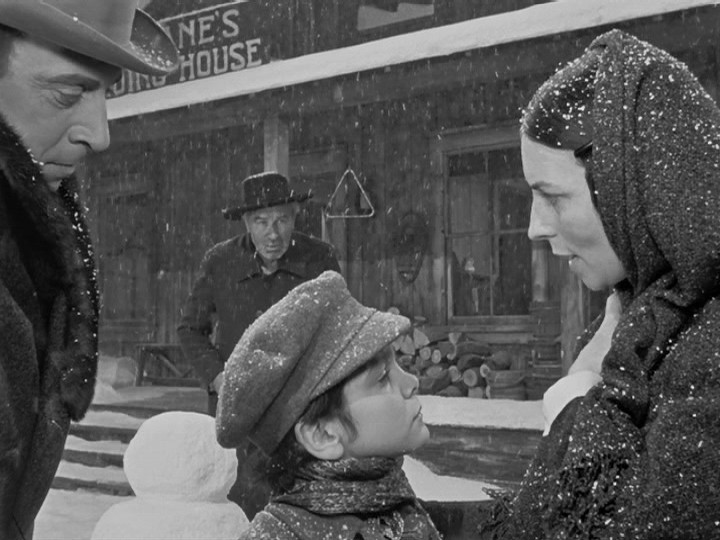
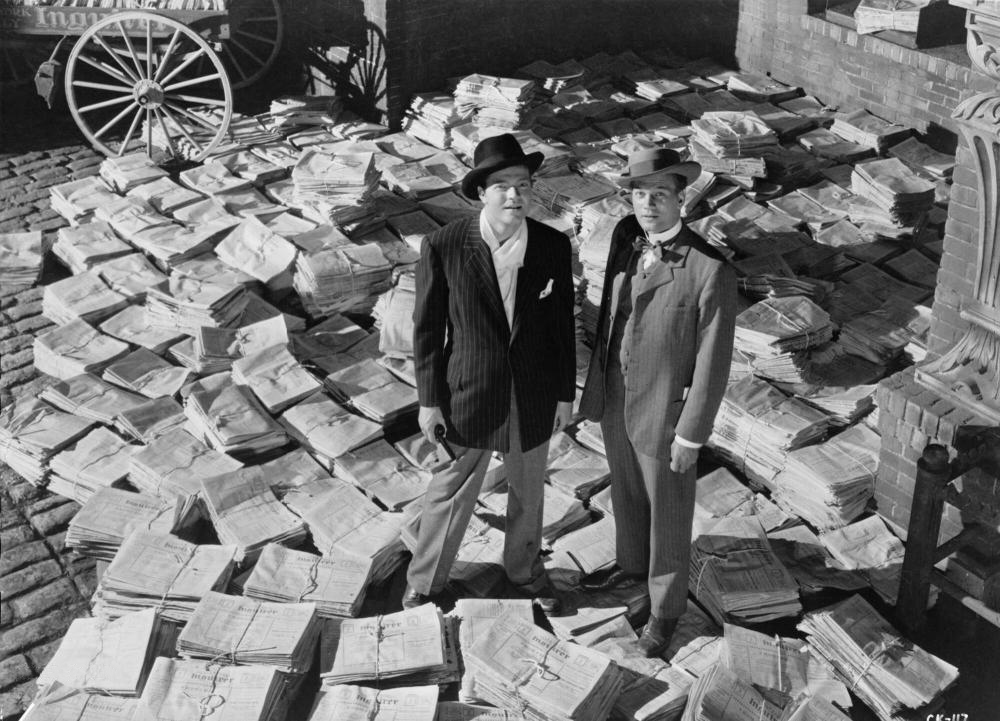

Official trailer
Why watch Citizen Kane?
185, West 72nd Street – The iconic address where Citizen Kane a.k.a Charles Foster Kane lost his path to glory. Probably, the only point in his career where he listened to his heart, and not his mind. But then, love has claimed so many!
His definitive goodness of character is exposed here, which he started losing soon enough, when he marries his second wife – Susan Alexander Kane. She complains of toothache on the wedding night, come to think of it. How many of us can relate to that one? Again, his goodness came over and he drowns it in a smoke of humour.
‘Citizen Kane’ – the movie revolves around the death of a newspaper tycoon and an industrial magnate, played by Orson Welles. It is a beautiful show of the search for the unknown “ROSEBUD” and its relevance, Mr. Kane’s last words before his death, after dropping a snow globe. The movie projects Kane as the ‘Kublai Khan’ of America. His views or actions on everything created plundering news. In fact, he was ’news ‘personified’ in his time. A glorious insight into the life and legacy of Charles Foster Kane.
Citizen Kane is dynamic, mostly stubborn, at time eccentric, good and bad. He was very clear on what he wanted and what he dreamt, only confused perceptions of people around him came through, as Kane was unpredictable.
The film is about an investigation of what is “ROSEBUD,” Kane’s dying words. His fame, riches, and glory warranted it. After his death, in the final stages of the film, Kane’s belongings were discarded after cataloging by his staff. In those, they find a badly stained sled, the one used by 8-year-old Kane as a playmate on the day Mr. Thatcher took him away, tears running down Kane’s eyes. They throw it into the furnace and the film ends with the sled slowly burning and we can see its brand through the flames – “ROSEBUD”.
“I guess “Rosebud” is just a piece in a jigsaw puzzle… a missing piece.” — Jerry Thompson
Why he is what he is and what he wanted is implied in his last words… ‘ROSEBUD’.
There have been many theories on it, but if I were his bosom friend like Mr. Leland, his nail in the coffin says it all. “Rosebud is something he lost’ in a later interview in the movie. He also says “Mr. Kane was trying to prove he was honest all his life… to people!”
Actually, Mr. Kane was trying to prove that he was a self-made man despite his inherited riches and glory. He was trying to prove his place in the world as a good, capable man, nothing wrong with that. Sadly, his friends and peers looked more into his wealth than into him.
“I suppose he had a private sort of greatness, but he kept it to himself.” — Jedediah Leland
At 25, he begins his career on the platform of being the ‘6th richest man in the world’. Instead of using his wealth to build more, he takes over a dwindling newspaper ‘The Inquirer’, where on he publishes a declaration on the first day at office. That shows, he wanted to prove his worth in the worlds irrespective of his windfall inheritance. That’s quite noble.
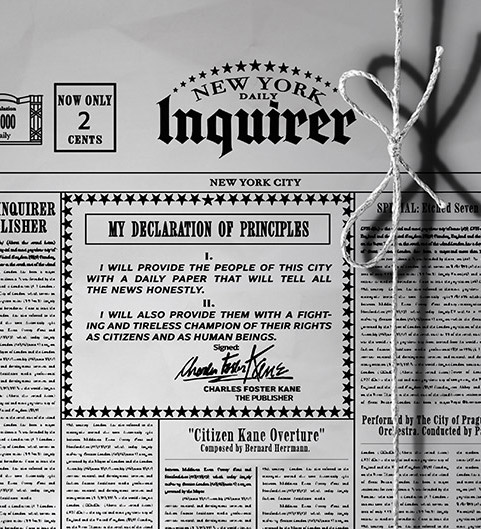
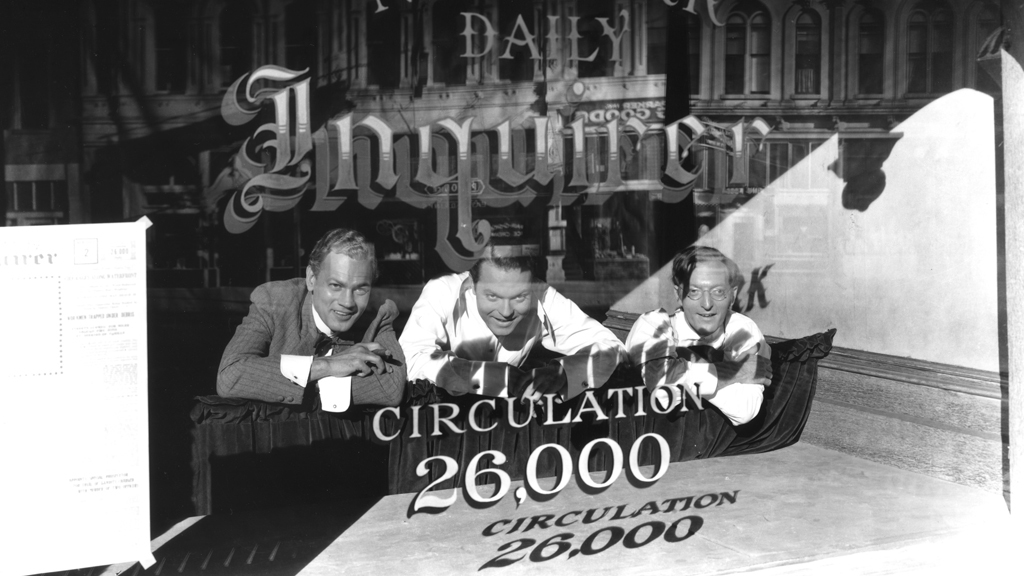
There are many scenes of his career going from a 26,000 readership to 645,000, why by no means an easy task in that age and era. Kane’s ambitions and his hunger to capture the world are quite evident. His self-respect drove him to be self-made man. At one point, he surmises…
“I always gagged on that silver spoon.” — Charles Foster Kane
There are many clips of Susan Alexander Kane, played by Dorothy Comingore, across the movie, but I ignored them, as they are just a part of the story. Simple, I disliked the character. Kane built her a place larger than an Opera House as per Mr. Leland. And, ironically, it has a glass roof through which you could see the sun, moon, stars, snow and the rain, and they looked at you. He left no stone unturned to make her a singer, out of love.
An opera show later, ‘The Inquirer’ publishes an honest, absolute negative review of Mrs. Kane. Mr. Leland sends Kane’s declaration in mail, the declaration he made when he took over ‘The Inquirer’ as in the left picture above. Kane just tears it up with little ado, obvious with all that has happened with his life, those principles in the declaration are down the drain. His declaration to Susan, after tearing it up – “You will continue with your singing” is the epitome of what he has turned into – an egotistic, stubborn man… all that ignorance of his youth gone south.
He sums it up beautifully…
“If I hadn’t been very rich, I might have been a really great man.” — Charles Foster Kane
He retires to Xanadu, a paradise he has built over the years, complete with an artificial hill on the beach, a pleasure haven with the largest zoo in the world, treasures (painting, statues, pictures) that can fill 10 museums all confined in 20,000 tons of marble, sprinkled with 100,000 trees. Susan comes with him attracted by the riches and in serious conversations she always accuses him of giving her nothing but money and not loving her. He notion of love was very rich and very male, he says “You don’t love anybody! Me or anybody else! Whatever you want, just name it and it’s yours!” Clearly Mr. Leland sums it up in the onscreen interview, when he says…
“That’s all he ever wanted out of life…was love. That’s the tragedy of Charles Foster Kane. You see, he just didn’t have any to give.” — Jedediah Leland
Observation – It is amazing to find a statue to the left of the staircase in the main hall – Lion Capital, Ashokan Pillar at Sarnath, c. 250 B.C.E., polished sandstone, 210 x 283 cm (Archaeological Museum Sarnath, India)
Interestingly, did Mr. Kane buy it?
Susan leaves him despite his pleas. This argument driven separation is beautifully shown – differences of expectations in a relationship between a man and a woman. Only Mr. and Mrs. Kane were oblivious them. He goes about destroying Susan’s room when he finds a snow globe. He caresses it and says “ROSEBUD.” He slowly walks to his room, pocketing the snow globe, tears swelling in his eyes.
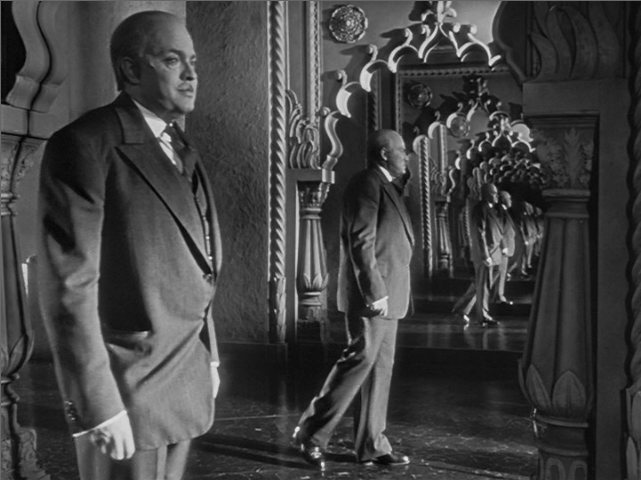
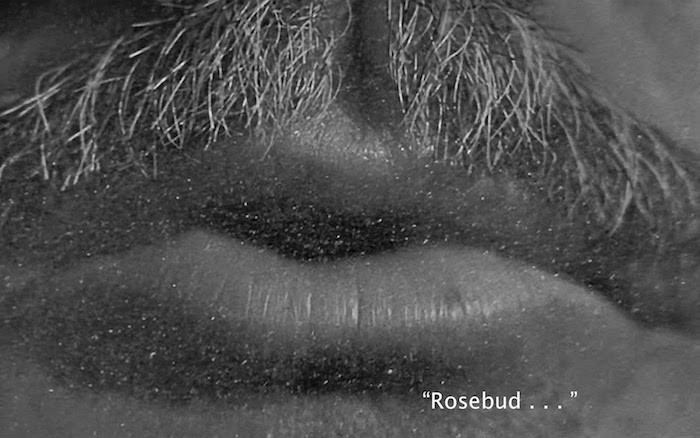
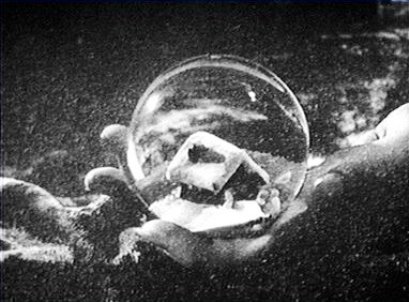
Interestingly in the real world of critics, reviewers and movie-buffs, “ROSEBUD” has many explanations even after the film has come and gone. It has been the centre of curiosity and investigations ever since, until today.
One version also says that it was the name given by Kane to the clitoris of his lover, actress Marion Davies.
Most say it is a brand name of the cheap sled he played with, as mentioned above. But since it burned behind their backs, no one in the film derived it. Probably a label but not a representation of what Mr. Kane meant. It was much more, much more.
Summarised beautifully by Mr. Thompson in the onscreen interview.
“Mr. Kane was a man who got everything he wanted and then lost it. Maybe “Rosebud” was something he couldn’t get, or something he lost.” — Jerry Thompson
After watching Citizen Kane ‘x’ times, my take is a little different.
A 8-year-old kid in the 19th century wouldn’t know ‘brands’, for him “ROSEBUD” was just a symbolic name, one that reminds him of his psychological distress. Evidence –
- When Susan leaves him and he finds the snow globe, he caresses it and says “ROSEBUD”.
- He lost his mother and missed her love when Mr. Thatcher took him away – psychological distress.His childhood was his only toy, named “ROSEBUD”, a remembrance of his mother’s love and his own innocence.
- And now, he lost Susan, another psychological distress. The only toy left behind is the snow globe, another “ROSEBUD”. So, as Mr. Leland put it, “Rosebud is something he lost’.
Love, affection, innocence are intangible losses. He had every tangible thing he wanted in the world.
So, “ROSEBUD” for me, is what Mr. Kane could not hang on to, even after getting them – love, affection and care. “ROSEBUD” is not an object, it is symbolic of what Citizen Kane lost and never to find again.
Available to view on YouTube. (Not sure if that works in your country, no harm in trying out.)
I loved his character for certain reasons. For one, he was a great man spoilt by money (wished I was too…). He had a good business sense and knew how to treat people. For a third, he was the greatest dreamer that ever lived.
Awaiting your ideas.
Little known trivia about Citizen Kane
- Orson Welles was probably THE genius of his era. He was on the cover of the Time Magazine before he was 23 for his work in the theatre.
- It is said that “Citizen Kane was a brutal portrait of newspaper magnate William Randolph Hearst. When Hearst learned of the Welles’ film, he set out to protect his reputation by shutting the film down.” Well, he could not.
- Innovative lighting and focusing methods using shadows and mirrors, probably copied by a great Indian director Guru Dutt. A semblance or resemblance is to Gregg Toland is seen. My interpretation, entirely.
- Citizen Kane’s cinematography revolutionised the look of the next-era movies because of Gregg Toland’s work and innovation.
- During the filming of Citizen Kane, Orson Welles was injured twice and had to be hospitalised.
- “Rosebud,” the sled from Citizen Kane was on auction much later at Sotheby’s, New York City. It was bought by none other than the director Steven Spielberg.
The last words scene…
Other reviews





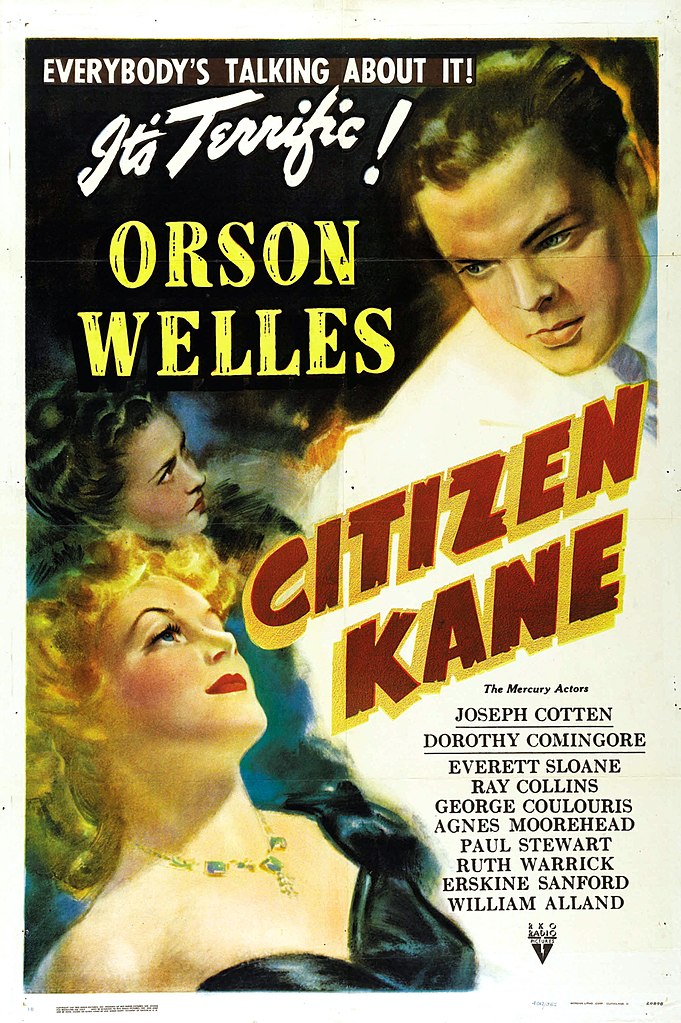
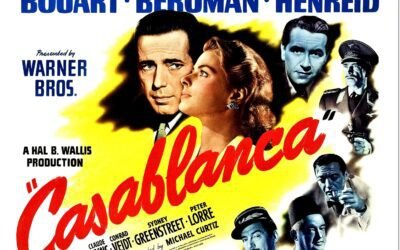
0 Comments